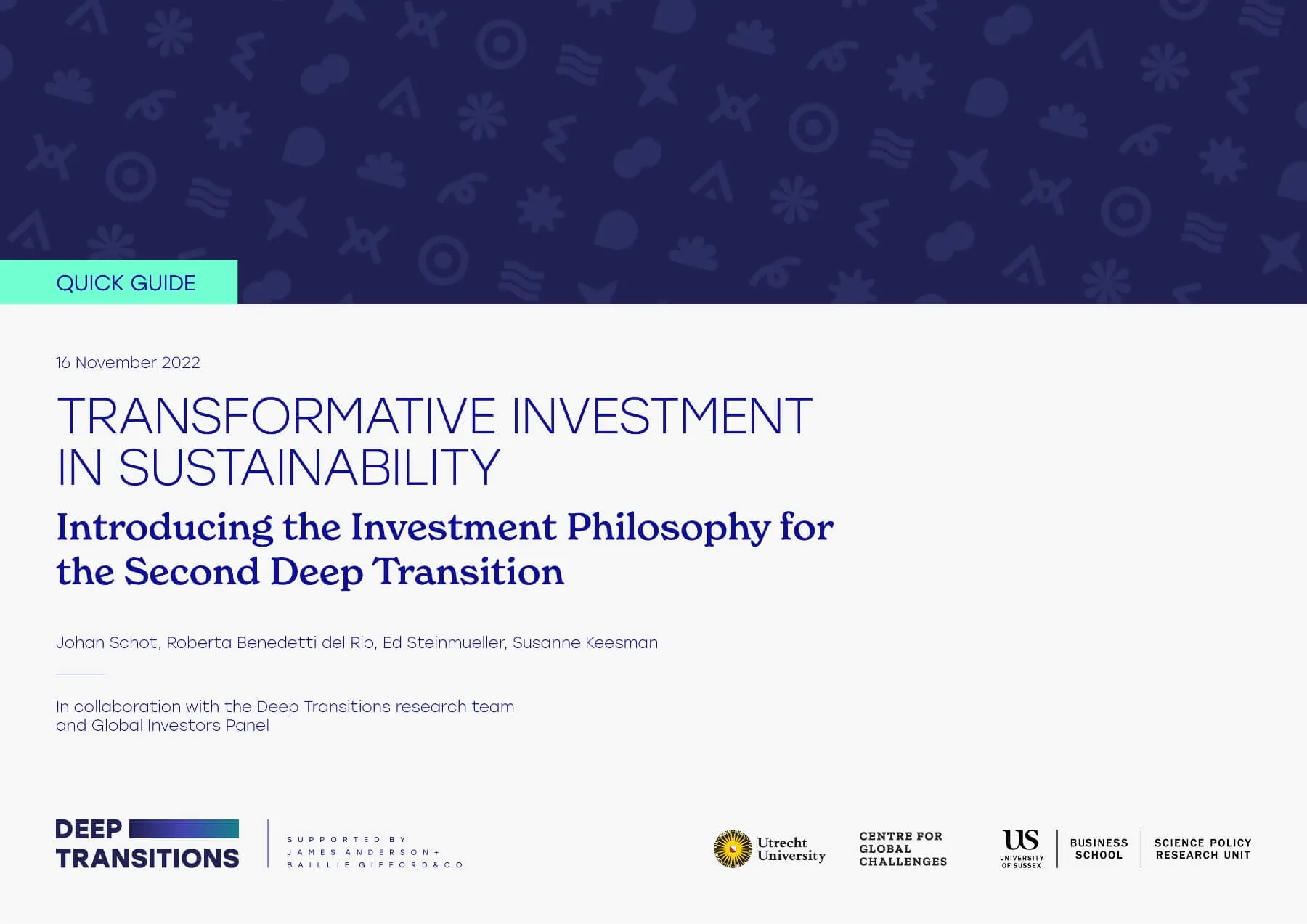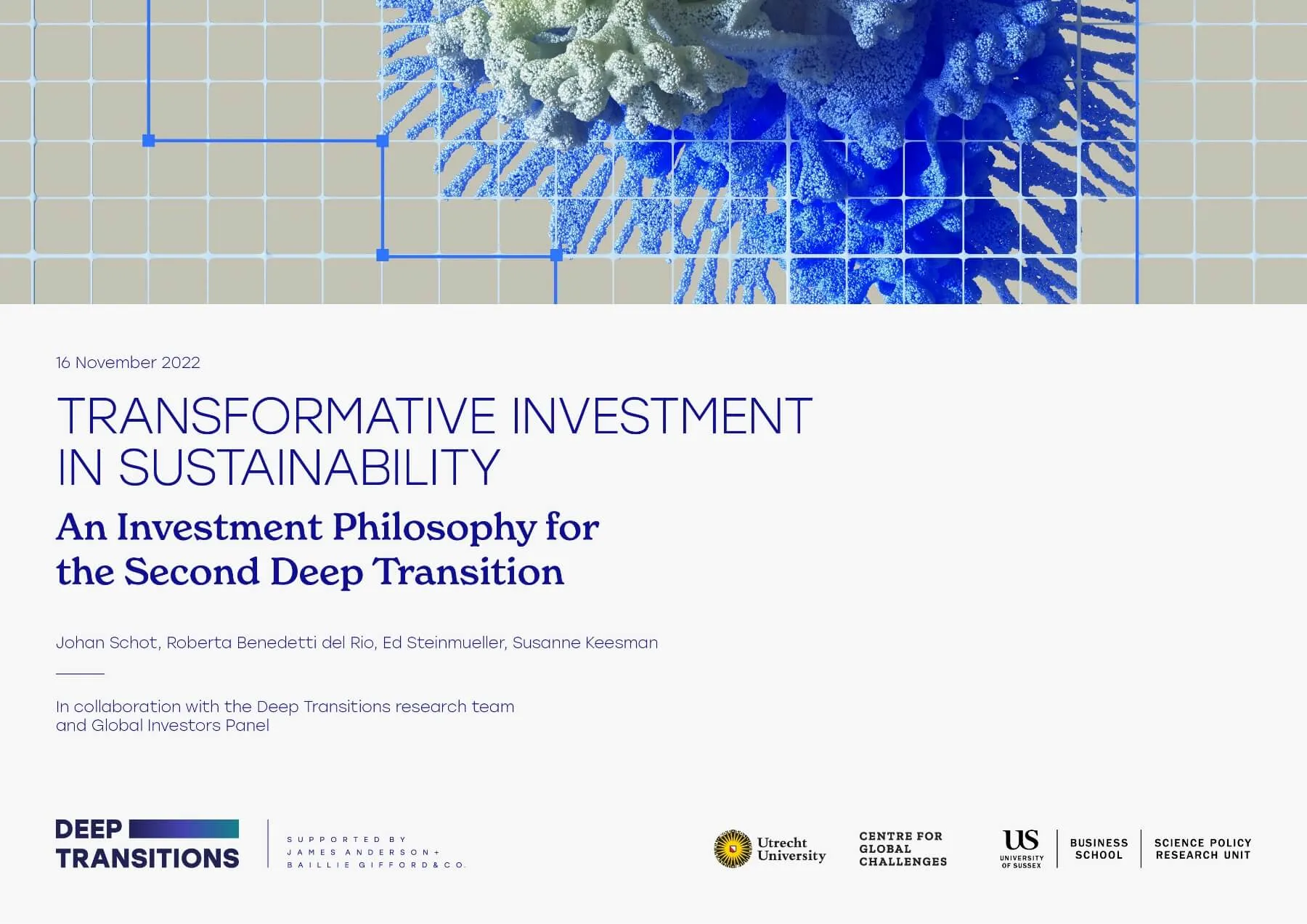Published on
Transformative investment: New rules for investing in sustainability transitions
Closing the financial gap for promoting systemic socio-economic transformations to achieve sustainability requires both a substantial increase in investment levels and a qualitative change in investment strategies. In this Perspective, we elaborate on this claim and discuss why existing investment approaches that aim to make positive contributions to sustainability are unlikely to foster the systemic transformations needed for sustainability. Qualitative change means changing the current rules that guide investment practices and we outline a new set of rules that should guide transformative investment. These rules are based on the well-established socio-technical sustainability transition theory and the recent development of a theory of deep transitions. We explain why these transformative investment rules offer a promising alternative base for assessing investment opportunities and monitoring progress toward the multi-system changes required to achieve a socially just deep transition to sustainability.

In 2014, the United Nations Conference on Trade and Development (UNCTAD) estimated that the annual investment needed for achieving the SDGs was USD 6.0 trillion (or USD 7.4 trillion in 2022 dollars), about 8 % of global GDP then. Despite public and private pledges to invest in sustainability, and an actual increase in “environmental, social and governance” (ESG) investments (Global Sustainable Investment Alliance, 2021), in 2020 the total annual financing gap has surged to USD 10 trillion (or USD 11.3 trillion in 2022 dollars) (Force for Good, 2021) – equivalent to more than two thirds of the sum of all investments made by OECD countries or roughly half of all global investments in 2020. While we agree that substantially more capital must be deployed, we argue that meeting the SDGs, and addressing the climate, resource, and biodiversity crises as well as rising inequalities, will not only require a substantial increase in the levels of both public and private investments across the globe, but also a transformation in the way investments are deployed.
In our view, the focus of investments must go beyond the tenets of ESG and impact investment practices, which are not delivering on their promises of bringing about positive, sustainable impact (Kölbel et al., 2020). The issue is that those practices are still based on rules that lead to system optimisation instead of transformation. We propose a new set of rules for what we call “transformative investment”, which is focused on realizing radical system changes in areas such as energy, water, mobility, housing, healthcare and food provision. The need to focus on system change is increasingly acknowledged in the finance industry (Aviva Investors, 2022; OECD, 2018; Triodos Investment Management, 2020). What is lacking is an appropriate conceptualization. This can be provided by sustainability transitions research.
Authors: Caetano Penna, Johan Schot, and Ed Steinmueller.








